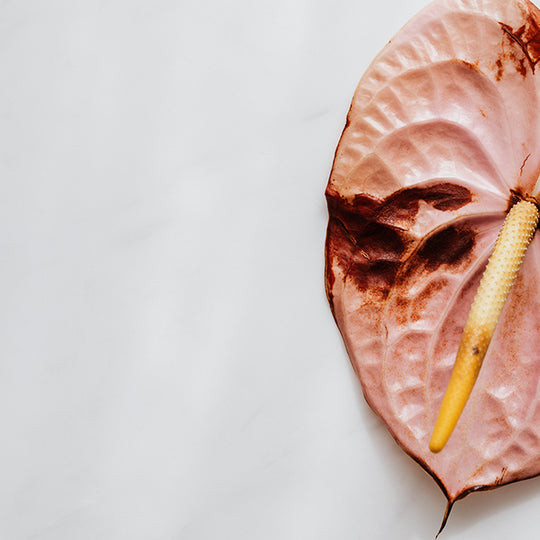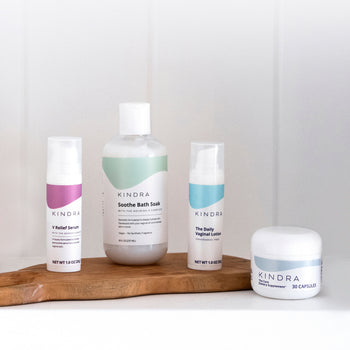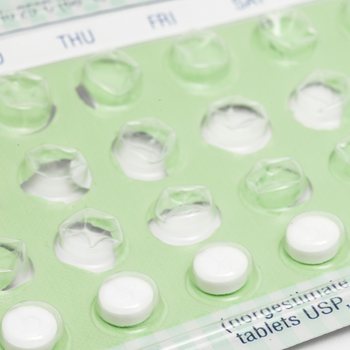Vaginal dryness. Ugh. It causes itching and worrisome discomfort in your most intimate area. Though vaginal dryness is often recognized as a side effect of perimenopause or a menopausal symptom, women of all ages can experience vaginal dryness. Aside from sensations of itching and burning, it can also make sex painful and impact your sex life. Knowledge is empowering, we want to equip you with as much women's health knowledge surrounding the causes of vaginal dryness and what can be done to ease discomfort. Read on for our primer about the causes, symptoms, and treatments for vaginal dryness.
What is vaginal dryness?
There’s a thin, moisturizing barrier in the vagina that works to moisturize the vaginal tissue. This barrier coats the walls of the vagina and provides an alkaline environment that sperm survives and travels in for sexual reproduction. This barrier also serves to lubricate the vaginal wall, thus supporting sexual intercourse for a comfortable and pleasurable experience. However, as a woman evolves in age, so does her hormonal production. This shift in hormonal production can trigger the vaginal walls to thin. With thinner vaginal walls leads to less moisture, as there are now less cells to produce moisture. Voila! Vaginal dryness!
Vaginal atrophy (scientifically known as atrophic vaginitis) is a pretty terrible medical term for when vaginal dryness is likely to occur. Typically occurring in postmenopausal women, it is the thinning, drying, and inflammation of the vaginal walls due to decreased estrogen. This can cause both vaginal and urinary discomfort, so doctors tend to call this condition genitourinary syndrome of menopause (GSM).
What are the symptoms of vaginal dryness?
Let’s talk about the signs of vaginal dryness. While this can lead to bacterial or yeast infections, it is important to know the symptoms of what may simply be dryness so you can seek the appropriate solutions. Vaginal itching may be an indicator. Soreness or burning of the vagina is a key signal that you’re experiencing vaginal dryness. Painful intercourse is another indication. Light bleeding can even occur after painful sex due to dryness. Finally, mild vaginal discharge can also be a sign of vaginal dryness occurring.
Causes of Vaginal Dryness
While dwindling estrogen levels are typically the culprit of vaginal dryness, since women produce less estrogen as they mature in their lives, low estrogen doesn’t only occur during menopause. Life after childbirth can bring on vaginal dryness. Breastfeeding can also trigger vaginal dryness. Smoking, immune disorders, and cancer treatments can all be culprits for vaginal dryness. Changed your birth control recently? Shifts in birth control can trigger dryness down there. Treatments for breast cancer and other cancer treatments can also throw off your hormones and trigger vaginal dryness. Speaking of treatments, anti-estrogen medications may be the culprit for vaginal dryness.
Do you use soaps or douches in your vaginal area and find you are feeling dry? Try discontinuing use and see if that helps ease some of the dryness and irritation. The vagina is self-cleaning and doesn’t need hygiene products like douches to keep it fresh. Douching can actually trigger inflammation, dryness, yeast infections and even urinary tract infections.
Do you find that the vaginal dryness only occurs during sexual intercourse? Vaginal dryness can significantly impact sexual desire. Incorporating foreplay and lubrication may help increase pleasure during sexual activity.
Finally vigorous exercise, like cycling or spin classes, can also cause some dryness and irritation.
When is it time to seek help from a healthcare provider?
First, to ease your mind a bit: Vaginal dryness is seldom an indication of a serious medical condition. More often it is a symptom of a different shift in your life - whether that is menopause, child rearing, a change in exercise routine, or new cleansing products. That being said, it is incredibly uncomfortable and the suffering does not need to continue.
If you find that you’re feeling uncomfortable beyond just a few days or if the discomfort arises consistently during sexual intercourse, it’s time to seek some support from a healthcare provider. Left untreated, vaginal dryness can trigger sores or cracking in the vagina’s tissues. Ouch! A note of caution: If the dryness and discomfort is accompanied by severe bleeding that is not related to your menstrual cycle, be sure to seek immediate medical attention.
How to treat vaginal dryness?
There are many treatment options for seeking relief. To start, finding a lubricant or lotion to nourish the dry skin in the vagina may be the answer. Lotions help because ultimately the discomfort comes from dry skin in the vagina. Much like skin anywhere else on our body, it needs TLC and nourishing moisture to create relief. Our ph-balanced daily vaginal lotion may be the answer . Since it’s pH-balanced, it won’t trigger further inflammation but will instead deliver pure hydration to where it is needed most.
If you find that vaginal moisturizers are not helping, seeing a women's health professional may be the next step. They will determine other medications that may provide relief and may even suggest estrogen therapy.
What to expect during a doctor appointment for vaginal dryness?
During a doctor appointment for vaginal dryness, your gynecologist will likely perform a pelvic exam so they can check your vaginal walls for thinning skin and any sores. They may also take a vaginal discharge sample to test for any harmful bacteria. Occasionally, a hormone test may be administered to determine if you are indeed in menopause. Alternatively, you can try out our menopause quiz to see if what you’re experiencing is an indication of perimenopause or menopause.
You don’t have to go it alone.
Vaginal dryness can be a major issue when it comes to that midlife evolution. Kindra has a Facebook group for women who are navigating menopause. From enjoying sex during to forming connections to finding your kindred spirits, all is on the table for discussion. We’d love to have you join us. If you want more education on the symptoms of menopause, we've got you covered. Check out our symptoms overview here.
Sources:
https://www.everydayhealth.com/vaginal-dryness
https://www.healthline.com/health/vaginal-dryness#seeking-medical-help
https://helloclue.com/articles/cycle-a-z/vaginal-dryness-why-it-happens-what-you-can-do-about-it
https://www.health.harvard.edu/womens-health/dont-ignore-vaginal-dryness-and-pain
NOTICE: KINDRA DOES NOT PROVIDE MEDICAL OR HEALTH CARE ADVICE. OUR EMPLOYEES AND OTHER REPRESENTATIVES ARE NOT PHYSICIANS OR HEALTH CARE CLINICIANS. YOU SHOULD CONSULT YOUR PERSONAL PHYSICIAN FOR ANY MEDICAL AND/OR OTHER HEALTH CARE ADVICE BEFORE ACTING ON ANY INFORMATION PROVIDED BY KINDRA OR ANY OTHER SOURCE.
Continue the Conversation
Leave a Reply
Tags: About Menopause Anxious body Connection Foggy & Unfocused Hot flashes Low Sex Drive Managing my Hormones Mental Well-Being Moody & Irritable Painful Sex Physical Well-Being symptom:vaginal-dryness Vagina vaginal atrophy vaginal dryness vaginal itching













My vagina it is hard for me to get wet
— Jasmine Ross